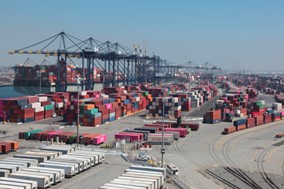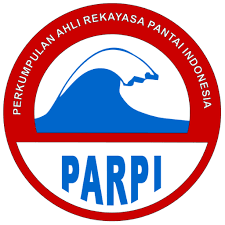APPLICATION OF ARTIFICIAL INTELLIGENCE (AI) TECHNOLOGY TO SUPPORT PORT OPERATIONS
DOI:
https://doi.org/10.62012/sensistek.v6i2.31712Keywords:
Kata Kunci: Artificial Intelligence, Logistik, Operasional Pelabuhan, Pelabuhan, TeknologiAbstract
Artificial Intelligence (AI) is a technology designed to create computer systems that are able to imitate human intellectual abilities. As time progresses, the potential demand for sea transportation increases. Managing the increase in cargo and containers in an efficient and environmentally friendly manner is currently a major challenge for port operators and the logistic industry. In addition, port operators are not only facing an increasing increase in ship traffic. On the other hand, logistics distribution flow data is an absolute thing that must be managed well by maritime world stakeholders. The only solution to all these problems and challenges is to maximize the role of artificial intelligence-based technology and information systems in the maritime environment or what we often call Artificial Intelligence (AI). Therefore, this research aims to analyze and explore the role of Artificial Intelligence (AI) to support port operations in Indonesia.Downloads
References
Saing, D. 2020. Industri Kepelabuhan Dan Peran Teknologi Informasi ( TI ) Untuk Peningkatan Daya
Barczak, A., Dembińska, I., & Marzantowicz, L. 2019. Analysis of the Risk Impact of Implementing Digital Innovations for Logistics Management
Pratama, H. A., & Iryanti, H. D. 2020. Transformasi SDM Dalam Menghadapi Tantangan Revolusi 4.0 di Sektor
Foster, M. N., & Rhoden, S. L. N. H. 2020. The integration of automation and artificial intelligence into the logistics sector
Purwanto, F. 2019. Manajemen Pemasaran Kepelabuhanan
R. Ridwan and M. A. L. Pambudi, “Singapore International Hub-Port And Its Effects On The Smooth Running Of The Sea Freight Transportation System In Indonesia”, Journal of Maritime Technology and Society, vol. 2, no. 3, pp. 125-134, Oct. 2023.
E. D. Kusumawati, K. Karjono, and K. Karmanis, “Review of Port Management Integrated Digitization System: A Pathway to Efficient and Sustainable Port Operations”, Journal of Maritime Technology and Society, vol. 2, no. 2, pp. 55-60, Jun. 2023.
Alayida, N. F., Aisyah, T., Deliana, R., & Diva, K. 2023. Pengaruh Digitalisasi Di Era 4.0 Terhadap Para Tenaga Kerja Di Bidang Logistik.
Orji, I. J., Kusi-Sarpong, S., Huang, S., & Vazquez-Brust, D. 2020. Evaluating the factors that influence blockchain adoption in the freight logistics industry
O. Nwaogbe, S. Bissalla, V. Omoke, J. U. Eru, and H. Y. Wokili, “Analysis Of Seaport Safety In Nigeria: Case Of Apapa Port Complex Lagos”, Journal of Maritime Technology and Society, vol. 2, no. 3, pp. 102-112, Oct. 2023.













